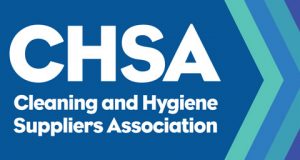Proper food hygiene is vital to avoid food poisoning and the spread of bacteria. Here, Mike Hardman, from catering equipment supplier Alliance Online, gives us his five food hygiene tips for a clean retail kitchen.
Kitchen hygiene is important but, unfortunately, 1 in 15 businesses across England, Wales and Northern Ireland have a hygiene rating of 2 or lower, according to a recent report from High Speed Training. Bad kitchen practice can be detrimental to your business, and you could be risking the health and lives of your customers.
Food hygiene is about more than just washing your hands thoroughly. Below, are some simple kitchen hygiene practices you should be following, including the ‘four Cs’: cleaning, cooking, chilling and cross-contamination.
Store food safely
Safe food storage is hugely important, and it’s more than just placing everything in the fridge until you need it. Certain foods should be stored in specific areas of the fridge. Raw meat, poultry and fish should be stored on the very bottom shelf to avoid any juices dripping onto, and contaminating, other foods. Cooked food should be left to cool down completely before being placed in the fridge to avoid the risk of food poisoning. And remember to always cover food before storing it to reduce the spread of bacteria.
It’s important that you always check the dates on food packaging to see if it is safe to eat. But there is a difference between use-by and best-before dates:
- Use-by: Food after this date could be harmful and may cause food poisoning so should not be eaten.
- Best-before: Food after this date is safe to eat but the texture and taste may have changed slightly.
Clean all surfaces
A clean kitchen is important to avoid the spread of bacteria. Walls, floors, worktops, sinks, utensils, large equipment and grills should be cleaned daily with an antibacterial solution. Uniforms, towels, aprons and cleaning cloths should also be washed and sanitised every day.
Fridges, freezers and ovens can be cleaned once a week, but a deep and thorough cleaning of the whole kitchen should be done at least once a month.
Avoid cross-contamination
Cross-contamination can occur when raw meat comes into contact with ready-to-eat foods like vegetables. Proper food storage can help, but it’s important you also take care when handling and preparing food. Utensils used to prepare meat and poultry should not be used to prepare anything else. To remind you which equipment has been used for meat, it can help to use different coloured utensils.
Remember to never use wooden chopping boards to prepare meat or poultry as these can hold onto food and bacteria which can be difficult to clean. Instead, you can use plastic or glass. Furthermore, it’s also important that you always wash your hands after handling raw meat to avoid transferring bacteria to the rest of the food.
Cook food thoroughly
Most food is considered fully cooked once it has reached a core temperature of around 70°C for two minutes. This should be enough to kill off any bacteria that may be inside the food. For poultry, pork, minced meat and offal, you should check that the meat is steaming hot before serving. The meat should not be pink and any juices should run clear. For red meats such as beef or lamb, the outside of the meat should be sealed before serving, even if the middle is still rare.
Dispose of food correctly
When it comes to disposing of waste in your commercial kitchen, you should have a bin with a lid. It also helps if it has a foot pedal or sensor, so touching the surface of the bin is not required, as this is a common breeding ground for bacteria.
To avoid the build-up of germs and bad odours, rubbish should be taken out every day and your bin should be cleaned thoroughly with a detergent and antibacterial cleaner once a week.
Proper food hygiene is crucial for commercial kitchens. The tips in this guide will help you to store, prepare, cook and dispose of food in a safe way.






